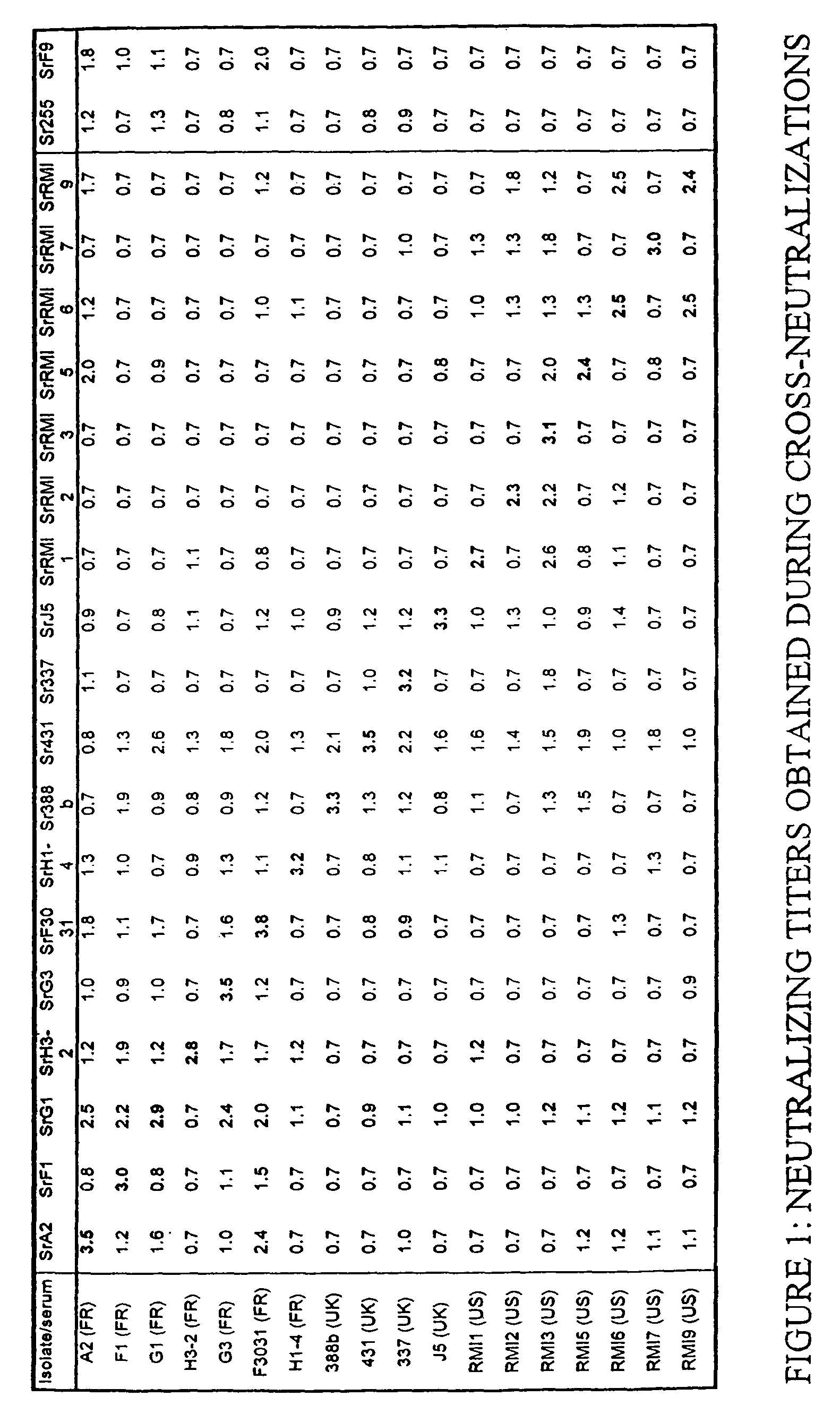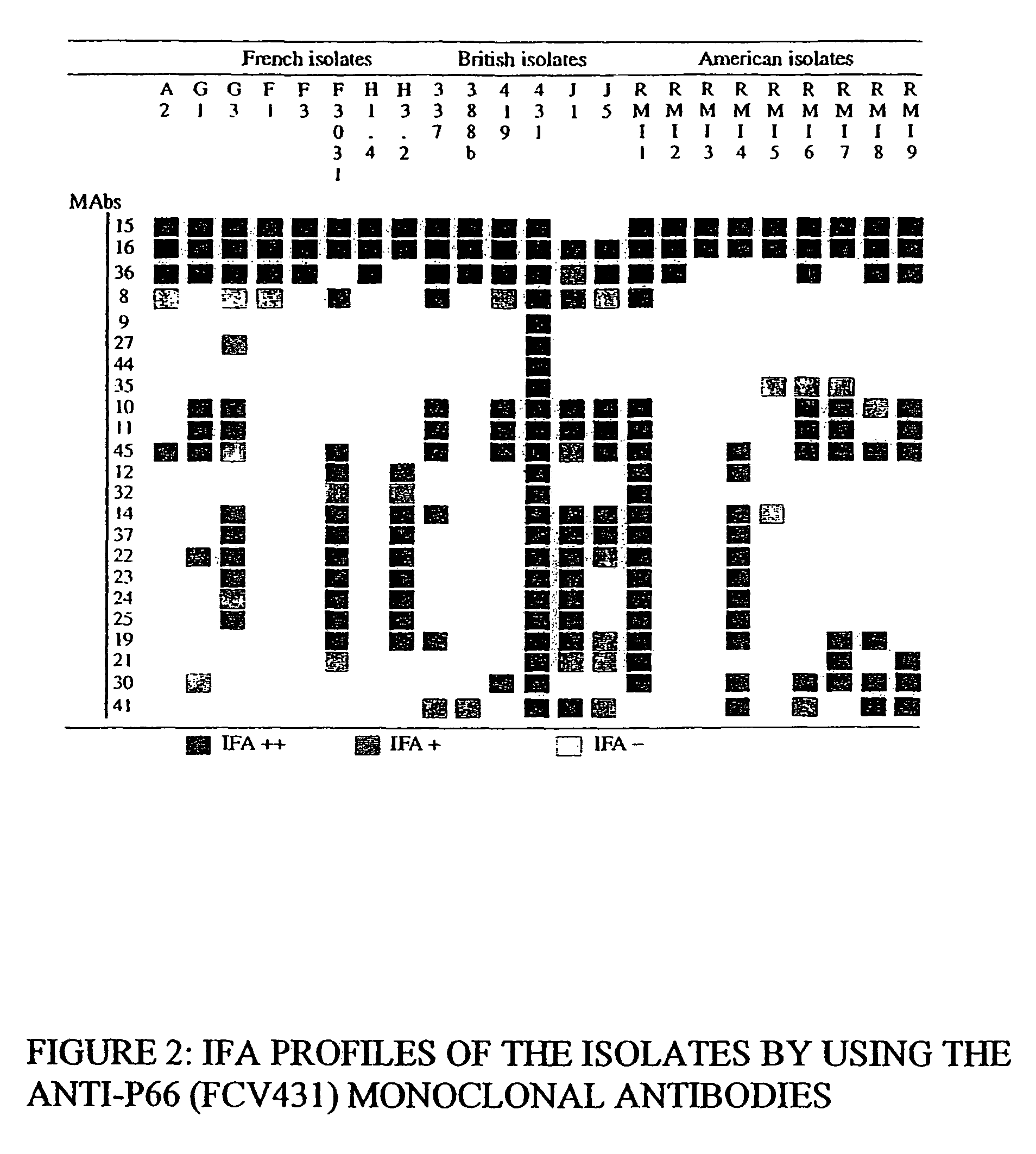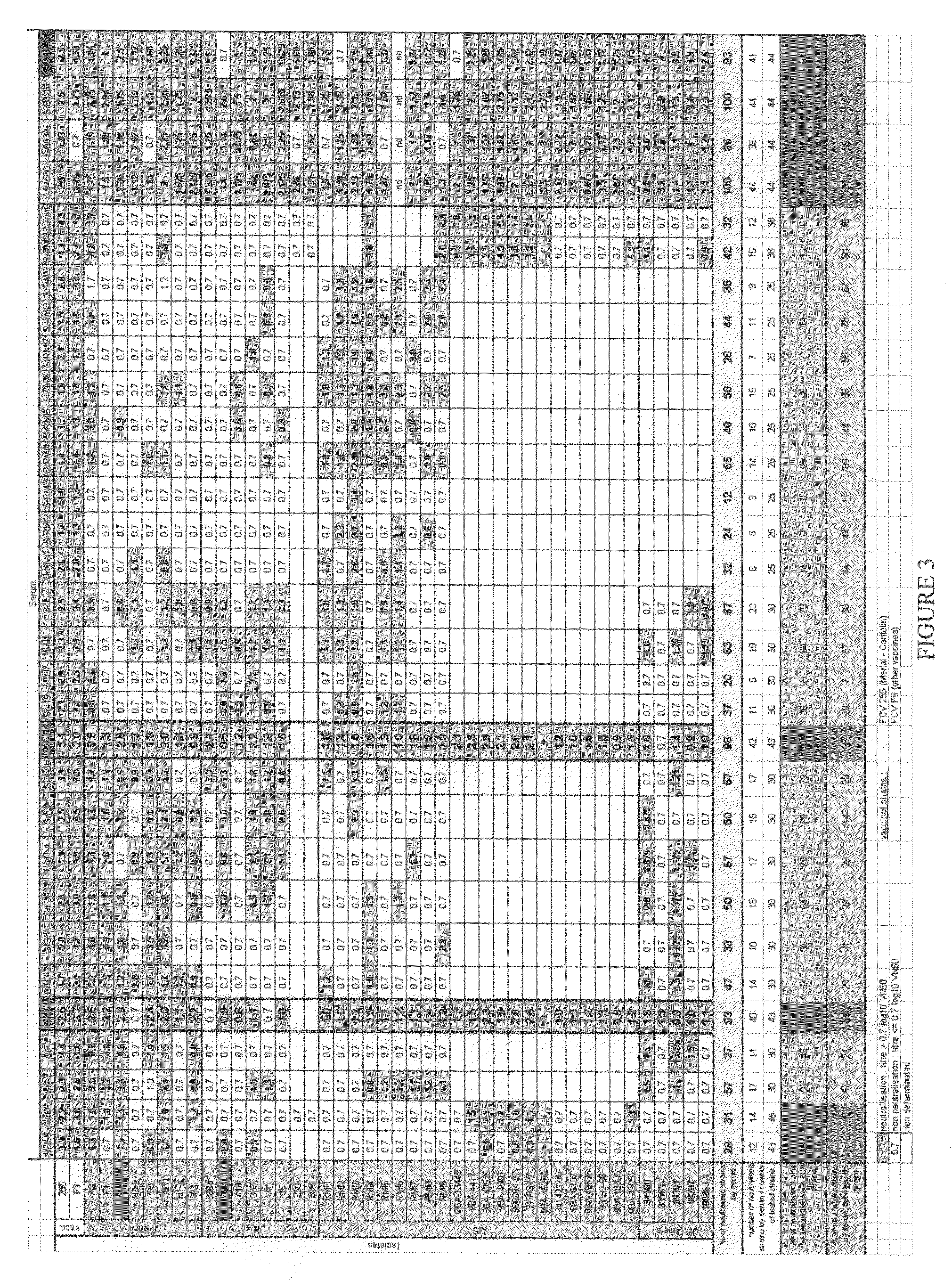Vaccine against feline calicivirus
a feline calicivirus and vaccine technology, applied in the field of immunology, can solve the problems of increasing the risk of vaccine-associated fibrosarcoma at the injection site, questionable safety of modified live vaccines, and inactivated vaccines from old fcv strains no longer offer sufficient protection against recent fcv strains
- Summary
- Abstract
- Description
- Claims
- Application Information
AI Technical Summary
Benefits of technology
Problems solved by technology
Method used
Image
Examples
example 1
Viral Isolates and Hybridomas
[0121]The feline caliciviruses (FCV) were obtained by pharyngeal swabs taken on cats exhibiting signs of infection with feline caliciviruses. These FCVs have different geographical origins.
[0122]The FCV 431, 337, J5, 388b, 220 and 393 strains were isolated in Great Britain and provided by Professor O. Jarrett of the University of Glasgow, UK.
[0123]The FCV A2, G1, G3, F3031, F1, H3-2 and H1-4 strains were isolated in France by the Applicant.
[0124]The FCV RMI1, RMI2, RMI3, RMI5, RMI6, RMI7 and FMI9 strains were isolated in the USA by the Applicant.
[0125]The pharyngeal samples were collected in 2 ml of Dulbecco's modified Eagle's minimum medium (DMEM, Gibco BRL), supplemented with 5% fetal calf serum (Bayer Diagnostic), with antibiotics, more particularly with 50 mg / l of gentamycin. Each isolate is frozen at −70° C. while waiting to be tested. The monoclonal antibody 44, obtained from the hybridoma identified 431 2 0 17 E9 T, is specific for the FCV 431 str...
example 2
Amplification of the Viral Isolates
[0126]Cells of the cat kidney line (Crandell-Reese Feline Kidney or CRFK No. ATCC CCL-94, Crandell et al. In Vitro 1973. 9. 176-185) are cultured in a 96-well plate or in a 25-cm2 Falcon (Falcon) with DMEM medium supplemented with 5% fetal calf serum, containing about 100,000 cells per ml. The cells are cultured at 37° C. in an atmosphere containing 5% CO2. After 3 days, the cell layer arrives at confluence. The culture medium is then replaced with serum-free DMEM medium supplemented with 50 mg / l of gentamycin and the thawed aliquot of the FCV viral isolates (Example 1) are added at the rate of a volume of 100 μl of four-fold serial dilutions per well for the limiting dilution cloning of the FCV viruses or of 1 ml per Falcon.
[0127]When the cytopathic effect (ECP) is complete (24-48 hours after the start of the culture), the viral suspensions are harvested and frozen at −70° C. 3 to 4 successive passages are generally necessary for the production of...
example 3
Production of Serum
[0128]For each FCV virus, an antiserum was produced by inoculating kittens by the oronasal route with 106.0 CCID50 of the relevant FCV virus. The specific pathogen-free (SPF) kittens were 10 to 14 weeks old. The serum of each animal was collected one month after the infection. The sera were heat-inactivated (30 minutes at 56° C.), distributed, aliquoted and stored at −20° C.
PUM
| Property | Measurement | Unit |
|---|---|---|
| pH | aaaaa | aaaaa |
| concentration | aaaaa | aaaaa |
| volumes | aaaaa | aaaaa |
Abstract
Description
Claims
Application Information
 Login to View More
Login to View More - R&D
- Intellectual Property
- Life Sciences
- Materials
- Tech Scout
- Unparalleled Data Quality
- Higher Quality Content
- 60% Fewer Hallucinations
Browse by: Latest US Patents, China's latest patents, Technical Efficacy Thesaurus, Application Domain, Technology Topic, Popular Technical Reports.
© 2025 PatSnap. All rights reserved.Legal|Privacy policy|Modern Slavery Act Transparency Statement|Sitemap|About US| Contact US: help@patsnap.com



